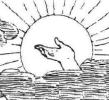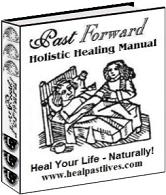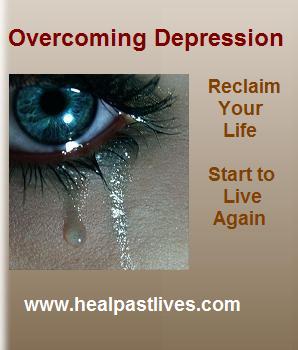|
Cure #15: When You Just Can't Stop: How to Identify Addictive Behavior
What is Addiction? Most think that "addicts" are those who are "hooked on drugs or alcohol". Yet addiction is much more that that... people can become addicted to prescription medicine, cigarettes (nicotine), coffee/soda (caffeine), sugar, work, gambling, exercise, shopping, sex, relationships, etc. Are You an Addict? How to know if you are addicted to any particular "thing" is by answering the following nine questions about it... honestly: 1> Can you stop doing "the thing" you suspect/others have told you that you are addicted to for a day, a week, a month, a year, or forever? 2> Does the thought of your stopping doing "the thing" for a short time cause you any physical discomfort, mental anguish, or emotional anxiety? 3> Would your stopping doing "the thing" cause you to be "less yourself"? 4> Have you tried and failed to stop doing "the thing" in the past? 5> Do you know that doing "the thing" does not serve you and/or is causing problems in your life (at home, at work, in the community)? 6> Have you lost friends or alienated family members or irritated coworkers because you keep on doing "the thing" no matter what? 7> Have you or are you putting your life at risk by doing "the thing"? 8> Deep down inside, do you really want to keep on doing "the thing"? 9> Does "the thing" control you or do you control "the thing"? And the Answer is:
When you cannot stop doing "the thing". When
the thought of what would happen by not doing "the
thing" scares you. When "the thing"
becomes who you are. When you keep failing at breaking
free from "the thing". When "the
thing" starts ruining your life. When "the
thing" is more important to you than family or
friends. When you consistently put your life at risk to
do "the thing". When deep down you hate
"the thing" but cannot let it go. "One medical definition of an addiction is an uncontrollable dependence on a substance, habit or practice. An addict experiences a severe emotional or physical reaction once they were to stop the activity." How Does Addiction Happen? One way to prevent or treat an addiction is to understand why it occurs. Doug Dorman, substance abuse counselor for CIGNA Behavioral Health, Inc., a subsidiary of CIGNA Corporation, explains it this way: "When something makes us feel good, there is a biochemical release in the brain, this feeling or 'high'... is also experienced by an addict. In addition to the high produced by the addictive behavior, the pursuit of an activity and the excitement of evading spouses, parents, bill collectors or employers can be equally satisfying to an addict. For example, some addicts have said they got more of a high from the process of stealing for and chasing down the drug than they did from using it." From the standpoint of karma and reincarnation, addictions happen like this. The past life resonance (a pattern of behavior inherited from past lives) is stored in a person's cellular memory from birth. As the individual matures in their new incarnation, they usually (not always) receive many opportunities to "address" the past life resonance in a more gentle and harmonious manner. When they reach the age where "addiction" becomes possible (even infants can become addicts if their mother was "using" during pregnancy), the past life resonance either hook them onto the path of addiction or that resonance is released from the body. Addictions are always highly karmic in nature. In the case of an infant born addicted, this is karma pure and simple that the individual has to work off. The later in life the addiction occurs, the more chances the individual was given beforehand to resolve their karma more peacefully and harmoniously. So there is no such thing as a "sudden addiction". The onset of the addiction may seem sudden to the person and to those around them... but there was always a pattern of events leading up to the addiction which made it necessary. If you are an addict and are honest with yourself, you will know the truth of these words. What is the "Cycle of Addiction"? "Regardless of the type of addiction a person has, they will probably go through the following cycle: feeling good, a loss of control, repetition and then a feeling of denial." The "Cycle of Addiction" operates in the following pattern: * The addictive substance or action
produces a "high" or "desired" mood
change. What are the Warning Signs of an Addiction? If you or someone you care about has started to display the following warning signs of addiction, please seek out professional help:
*
Dramatic Mood Swings
In general, whenever a person radically changes their whole complex of behavior for "the worse" they are addicted. Note that when they suddenly change their behavior for "the better", they may be a "walk-in". Who is Most "At Risk" for Addiction? Those "at greater risk" for addictive behavior are those with the following "factors": Physical:
Biological, includes genetics:
addictions run in families; low resistance to drugs. At certain times in life, people may be more vulnerable to addictive behavior. The more one needs comfort, escape from unpleasant situations, and solutions from "outside themselves", the greater the risk for addiction. Taking this one step further, I am of the firm opinion that those who tend to be addictive are unable to feel God's love for themselves. Lacking this warmth, they seek it elsewhere. Yet all that lies at the bottom of the bottle or the end of the needle is pain and emptiness... take it from one who knows. So How Can an Addict Fight Addiction? Once a habit has become destructive, a person needs to:
*
Admit that they have a problem and
immediately get help from others (professionals are
recommended). Credits: adapted from "CIGNA's Well-Being Newsletter" |
KEYS: ////F-R-E-E: SERVICES: BOOKS: TOOLS: CONTACT: |
||||||
|
Home | Instant Info | Past Life Profile | Catalog | Email
Our Services
Terms of Service
Coaching Agreement
Earnings-Income Disclaimer
Copyright © 2000-2023, Ellen A Mogensen,
Past & Now Forward Holistic Counseling, |





 Getting
Off the Addiction Train
Getting
Off the Addiction Train


